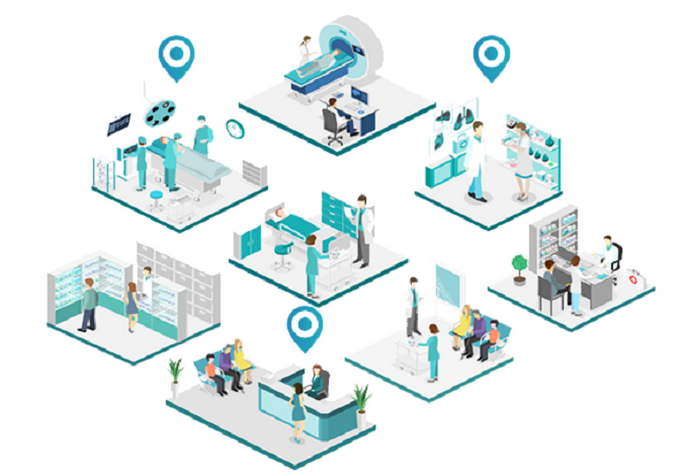An automated traceability and process system for smarter and greener hospitals
A medium-large hospital spends between 20-40 % of its annual budget on surgical interventions which implicate many different professionals. However, hectic surgical units are still managed in a rudimentary way in time-demanding situations, often leading to suboptimal scheduling and significant delays and cancellations in operating rooms.
A real-time system for the management of surgical processes
The EU-funded OR4.0 project used a patented real-time location system developed by the company MYSPHERA in Spain. This system is based on Bluetooth 4.0 electronic gateways, which are sparsely deployed across the surgical area’s ceiling and which receive information from patients’ Bluetooth wristbands, allowing patient tracking throughout the process. Project coordinator, Elena Castellano Cotanda explains: “Our solution leverages our light patient tracking system and orchestrates the surgical process engaging professionals with tailored applications rendering in-time information and automated tasks as patients move along the surgical process.” MYSPHERA’s technical team led by Eduardo Montón designed a modular architecture and built a series of customised applications in collaboration with the Vall d’Hebron hospital in Barcelona. This has enabled an optimal user experience and a smooth coordination of surgery staff by automating hospital processes. Furthermore, a specialised application for patient relatives allows them to check the status of the person undergoing an operation. As patients move across the surgical process, the OR4.0 platform informs in real-time the state of each patient and issues specific tasks to each of the tailored applications. For example, the panel tailored for surgical coordinators provides an overview of the daily planned surgical activity in each of the operating rooms and compares it with real-time information. This allows professionals to assess the current situation at a glance and take instant measures to correct delays.
OR4.0 advantages and prospects
The OR4.0 solution, now branded as ORVital, has been installed in five hospitals in four different countries helping to manage more than 500 operating rooms. Data gathered so far have shown optimisations of surgical block performance greater than 10%(opens in new window). MYSPHERA’s CEO, Salvador Vera explains that the new solution will help to improve patient and professional experience while boosting surgical capacity and backlogs. Also, considering that waiting lists for surgical procedures are increasing due to a growing healthcare demand, OR4.0 will help reduce waiting time and improve public health services. “Importantly, the digitalisation of the surgical process allows to reveal, for the first time, the real times spent in each part of the process without any human intrinsic bias and with abundant reliable data,” emphasises Jordi Rovira Simón, technical coordinator of the project. Apart from improving the delivery of patient care, the OR4.0 solution will transform the way a hospitals work, moving from a reactive to a proactive healthcare system. Moreover, it supports process transparency and gives patients’ families the opportunity to follow up the status of the intervention at home using the relevant application – a feature particularly important during the COVID-19 pandemic. Interestingly, the OR4.0 solution also can help to cut down hospital energy consumption, greatly contributing to making hospitals much greener organisations with significant savings. In high-income countries, the carbon footprint(opens in new window) of healthcare systems may reach 10 % of the total national greenhouse gas (GHG) emissions. In particular, the operating rooms are the most energy spending parts of a hospital, consuming about 20-40 % of the total energy expenditure. By integrating the OR4.0 solution with the climate system of the operating rooms, temperature and other parameters can be finely adapted automatically and save a lot of energy.







